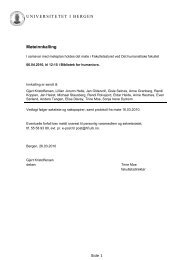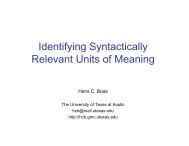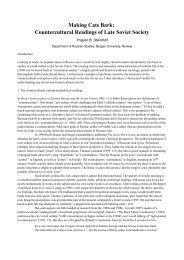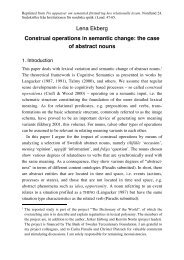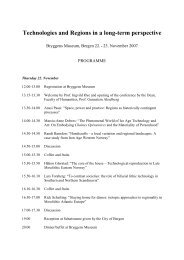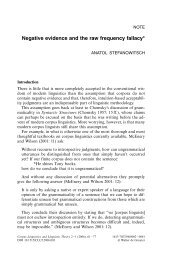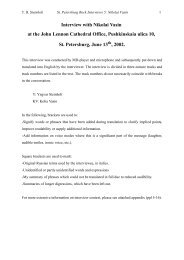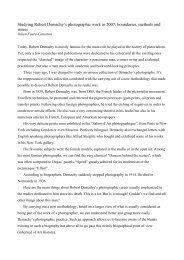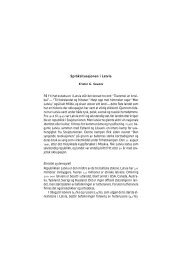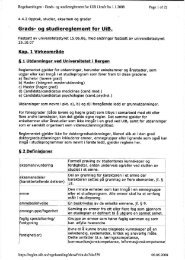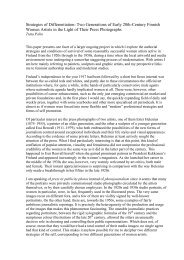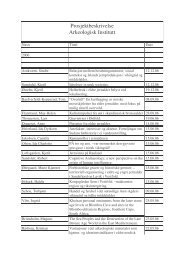THE BOOK OF POEMS IN TWENTIETH-CENTURY ... - TopReferat
THE BOOK OF POEMS IN TWENTIETH-CENTURY ... - TopReferat
THE BOOK OF POEMS IN TWENTIETH-CENTURY ... - TopReferat
You also want an ePaper? Increase the reach of your titles
YUMPU automatically turns print PDFs into web optimized ePapers that Google loves.
she is more concerned with her own spiritual journey, her own realization of God, than<br />
with the historical evolution of a new church for all humanity.<br />
Were it not for the many echoes found in the later poems about Teresa,<br />
"Рождение," one of only a handful of poems in the book which do not incorporate the<br />
poet's "я," might seem too impersonal for the overall tone of Сияния. The formulation<br />
"трехвенечная Свобода" seems to resemble Merezhkovsky's dialectic or the formal<br />
prayers invoked by Gippius, Merezhkovsky, and Filosofov at the time of the Cause more<br />
than the highly personalized, emotional language of Сияния as a whole. 130<br />
By means of<br />
these echoes, however, and particularly by dating the poem December 24th in the text,<br />
Gippius connects it to the later poems. Within the context of Сияния, a poem such as<br />
"Втайне," later both in terms of time of writing and position within the book, can now<br />
inform the earlier poem, "Рождение." The birth of "Рождение" could thus be read as the<br />
birth of Gippius's spiritual journey. The impersonal yet feminine Freedom leads her<br />
toward Teresa and other individual manifestations of the eternal feminine. Ultimately<br />
these figures lead her along her own spiritual path towards her own resurrection.<br />
A clear turn towards this personal path is evident in the seventh poem of Сияния,<br />
"Вечноженственное" ("The Eternal Feminine"), in which Gippius strives to celebrate<br />
and emulate the ideal, an unnamable feminine entity: 131<br />
Каким мне коснуться словом<br />
Белых одежд Ее?<br />
С каким озареньем новым<br />
Слить Ее бытие?<br />
О, ведомы мне земные<br />
Все твои имена:<br />
Сольвейг, Тереза, Мария...<br />
130 Pachmuss, Merezhkovsky in Exile, 68-9.<br />
131 This poem was originally dedicated to Nina Berberova. See Nina Berberova, Kursiv moi (Moscow:<br />
Soglasie, 2001), 287.<br />
102



